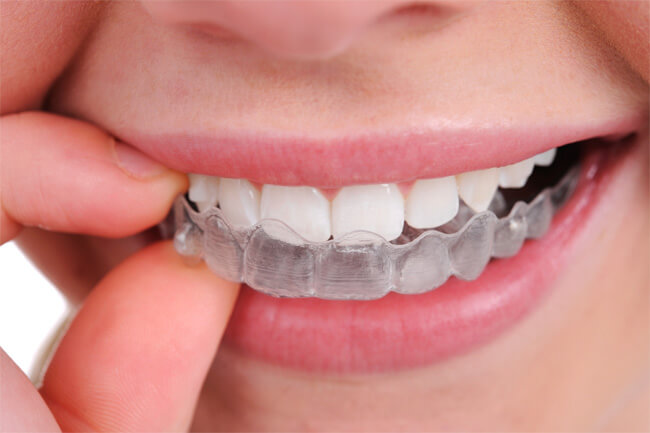Night guard
- Home
- Night guard

Nigth Guard
A night guard, also known as an occlusal guard or bite splint, is a custom-fitted dental device used to protect the teeth and jaws from the effects of bruxism, which is the excessive grinding or clenching of teeth during sleep. Here's an overview of night guards and their benefits:
• Protection from Teeth Grinding: Night guards are primarily used to protect the teeth from the harmful effects of bruxism, such as tooth wear, enamel damage, tooth fractures, and jaw pain.
• Prevention of Jaw Pain and Temporomandibular Joint (TMJ) Disorders: By cushioning the teeth and reducing the intensity of grinding forces, night guards can help alleviate jaw pain, muscle tension, and symptoms associated with temporomandibular joint disorders (TMD).
• Improvement of Sleep Quality: Bruxism can disrupt sleep patterns and lead to daytime fatigue and discomfort. Night guards can help improve sleep quality by reducing teeth grinding and associated symptoms, allowing for more restful sleep.
• Protection of Dental Work: For individuals with dental restorations such as crowns, bridges, or veneers, night guards can help protect these restorations from damage caused by grinding forces.
• Prevention of Headaches: Bruxism-related muscle tension and jaw clenching can contribute to headaches and migraines. Night guards may help reduce the frequency and severity of these headaches by relieving muscle tension and stress on the jaw joints.

Night guards are typically custom-made by a dentist or dental laboratory to ensure a precise fit and optimal comfort. The process involves taking impressions or digital scans of the patient's teeth, which are then used to fabricate a custom-fitted night guard. Custom night guards are generally more comfortable and effective than over-the-counter (OTC) alternatives, as they are designed to fit the individual's unique bite and jaw anatomy.